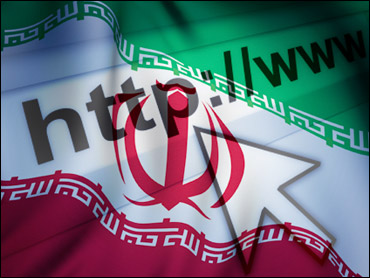 NEWS
NEWS
 NEWS
NEWS
 NEWS
NEWS
![]() Iran’s plans to create a domestic email service and assign each citizen a government email address have led to renewed speculation that the Islamic Republic wants to shut down the World Wide Web and replace it with its own domestic intranet. Recently, Iran’s president-elect Hassan Rowhani has spoken publicly in support of greater internet freedoms, but the idea of an imposed, state-run email system is seen by many as a backwards step.
Iran’s plans to create a domestic email service and assign each citizen a government email address have led to renewed speculation that the Islamic Republic wants to shut down the World Wide Web and replace it with its own domestic intranet. Recently, Iran’s president-elect Hassan Rowhani has spoken publicly in support of greater internet freedoms, but the idea of an imposed, state-run email system is seen by many as a backwards step.
Reuters reports that the new, state-run email system will be managed by Iran’s postal service, and would result in an increase in the number of data centers in the country, helping to connect the estimated sixty percent of the population who still don’t use the internet. In an interview with the semi-offical state news agency Mehr, Iran’s Communications Minister Mohammad Hassan Nami said that the email service would eventually become the primary means of communication between the government and its citizens, and the main avenue for access to government services and agencies.
“For mutual interaction and communication between the government and the people, from now on every Iranian will receive a special email address along with their postcode. With the assignment of an email address to every Iranian, government interactions with the people will take place electronically.”
Iranian citizens will be able to sign up for the service at mail.post.ir, where they will be able to receive a free @post.ir email address. Mehr reports that the service can handle up to 100 million users, supports English, Arabic and French as well as Farsi, with each user given 50MB of storage space, which can be upgraded to 2GB for a price.
![]() If any other developing country had announced such a plan, it would likely be seen as a positive, progressive step. However, Iran’s tight regulation of the net is common knowledge, which means that the new service has been met with a great deal of suspicion. One concern for Iran’s netizens if they’re forced to use government email will be the apparent lack of security – with all the infrastructure based in Iran, it’s unlikely there’ll be anything in place to stop the government snooping on people’s emails.
If any other developing country had announced such a plan, it would likely be seen as a positive, progressive step. However, Iran’s tight regulation of the net is common knowledge, which means that the new service has been met with a great deal of suspicion. One concern for Iran’s netizens if they’re forced to use government email will be the apparent lack of security – with all the infrastructure based in Iran, it’s unlikely there’ll be anything in place to stop the government snooping on people’s emails.
The major worry is that this could be another step towards Iran’s suspected goal of eventually switching the country off from the internet altogether. Over the last few years, Iran has reportedly been building all kinds of infrastructure to support a ‘domestic intranet’ that could eventually become a substitute for the World Wide Web. With popular services like Google, Facebook and YouTube often blocked in the country, alternative ‘halal’ variants of these have appeared in their place, including Mehr, Iran’s answer to YouTube, and recently announced plans for an “Islamic Google Earth,” which is set to launch later this year.
These rumors were heightened recently when access to Virtual Private Networks, or VPNs, was cut off last March, around the same time that web users began reporting slower connection speeds around the country. However, it seems that this was just a reflection of the Islamic regime’s paranoia ahead of the presidential elections – the restrictions were introduced as a temporary measure to prevent opposition activists from using the web to organize demonstrations as they did in the controversial 2010 elections. With the election having passed off peacefully, Iran’s internet is now reported to be back up to speed (although VPNs still have to be registered now).
Truth be told, there’s no way Iran would be mad enough to completely cut itself off from the world. Iran is not North Korea, which can survive without the web only because it’s never had one, and because most of its citizens have no idea what one is. Unlike its communist ally, Iran is highly dependent on international trade and the web is essential for many of its businesses. To cut off this lifeline would be economic suicide for a regime that’s already suffering from sanctions imposed on it by the west.
A far likelier explanation is what Iran’s leaders have insisted all along – that the domestic intranet will exist alongside the ‘real’ internet. Such an approach makes sense, as it would allow the country to maintain its communications with the outside world whilst limiting access to the broader web. Iran would be able to selectively block access to certain sites while shepherding Iranians towards its preferred, state-run alternatives. It already does this, and its state email service is just another step in this direction.
The big advantage for Iran’s leaders is that at ‘sensitive times’ it could seal off the web entirely, whilst still using the domestic network to assert its control over the population. Iran’s leaders would probably get away with such a move for a few days, but to try and do so permanently would only weaken its grip on power, exactly the opposite of what it’s really trying to do.
THANK YOU